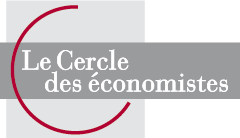Preserving individual freedoms after the pandemic
From Yann Algan, Member of Cercle des économistes
The Covid 19 pandemic is an extraordinary experience that the vast majority of the world’s countries had to face. The analogy was made during the first lockdown with a war situation. The State had to take charge of organising public space, public transport, work and even family life, and measures to contain or trace the population and their data.
The pandemic has thus put into tension the trade-off between individual liberties and the effectiveness of sanitary measures to tackle the spread of the epidemic. The acceptance of this trade-off differs greatly from one country to another, as shown by the remarkable study by Stéfanie Stantcheva and her co-authors “Civil Liberties in Times of pandemics” (NBER working paper 2021), with an opposition between the Confucianism model in China and Asia, and a more liberal model in Western democracies.
In democratic countries, it quickly became obvious that the management of the crisis, and of the dilemma of individual freedom and efficiency, actually required a co-production of the State with private agents, households and companies, and of all the experts, in particular scientists and the media.
It was the cohesion of the whole society that was tested, its degree of cooperation and trust between the different actors. It is crucial to draw a distinction between horizontal trust, that of individuals towards the rest of society, and vertical trust, that of citizens towards public authorities, scientific experts and the credibility of information and media. Paradoxically, the higher the horizontal trust, the lower the demand for public restrictions. In Sweden, for example, where interpersonal trust is among the highest in the world, public restrictions have been minimal. A country like France, where horizontal trust is low, experienced the first containment relatively well for this reason: the French expected the State to protect them from the supposed low civic-mindedness of their fellow citizens. Regarding the vertical trust in the “authorities”, the citizens’ trust in the government plays a decisive role in the acceptance of the restriction of certain freedoms (lockdown, data tracking, voluntary or compulsory vaccination). But the government’s trust in the empowerment of citizens, and in intermediary bodies to create a deliberative space on what measures to take and implement, is also decisive.
Another key dimension is trust in the “experts”, particularly scientists and the media, as to the credibility of the measures. At a time when vaccination has become the crucial issue for a way out of the crisis, it is essential that trust in the scientific word and in the media be preserved.
This roundtable will allow the address all of these issues, particularly around the following questions:
- Without a new social contract and a society of trust, can there be freedom? Has the collective interest now triumphed over individual freedoms?
- Have freedoms been set aside during the crisis in the name of the health emergency? Is there a trade-off between individual freedom and the effectiveness of preventive measures against major pandemics?
- How can we rethink our relationship with information? Have fake news killed democracy? Social networks, instantaneousness, disinformation, emotions: as many obstacles to information?












